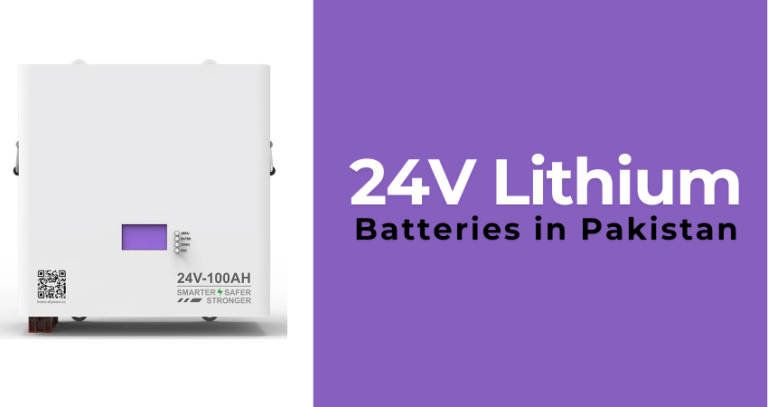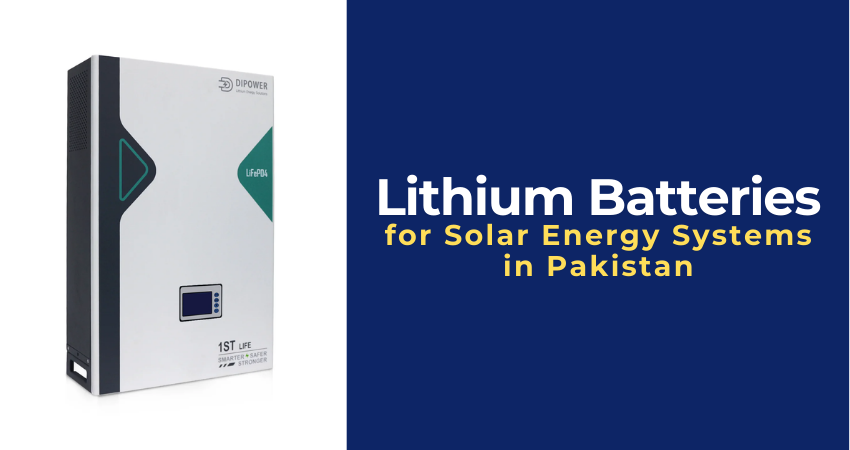Pakistan is facing a severe power crisis with a 7,000-megawatt power outage. The country’s electricity supply struggles to meet the growing demand, especially during the peak summer season. According to the Institute of Strategic Studies Islamabad report, when installed capacity reaches 28,200 megawatts, only 21,200 megawatts are available.
This situation has led to widespread power outages, with some areas experiencing power outages for 10 to 12 hours a day. The crisis, which has resulted in a loss of 16% of electricity supply due to theft and outages, is costing the economy billions of dollars annually and has increased the country’s debt crisis, which has grown to PKR 4 trillion.
As of March 2024, Pakistan’s installed electricity capacity has reached 42,131 MW, and its focus on sustainable energy is growing. The government’s goal of expanding the use of renewable energy to 60% by 2030 demonstrates its commitment to reducing emissions and improving energy security.
Lithium batteries, especially 24V and 100Ah, are popular because they provide a good energy storage solution to enhance solar installations. These batteries can provide up to 2.4 kWh of usable energy, ideal for homes storing solar power during power outages or high-demand periods.
Lithium Battery Mounted
Lithium batteries are preferred for their compact design and durability. This installation saves space while providing a large amount of energy storage. These batteries can last up to 4,000 cycles, better than traditional lead-acid batteries that last only 500. Longer life means lower replacement costs and less user maintenance.
Why Do Small Hybrid Inverters Benefit from 24V Batteries?
The increasing number of solar power systems in Pakistan has seen the need for energy storage solutions. 24V lithium batteries have become a good choice for small hybrid inverters for many reasons:
- Efficiency: 24V systems require less current than 12V voltage systems. This characteristic reduces power consumption during installation and lowers overall system efficiency. For example, a 24V battery can deliver twice the wattage of a 12V battery of the same capacity, which is essential in a household that relies on multiple appliances simultaneously.
- Reduce Voltage Drop: 24V switches can be wired longer without losing power, making it easier to design the building’s layout without affecting functionality. A voltage drop of 0.5V at 12V results in a loss of 4.6%, and the same voltage drop at 24V results in a loss of 1.04%. This feature is essential in large installations where distance impacts efficiency.
- Space and cost Savings: One 24V 100Ah battery provides the same energy storage capacity as two 12V 100Ah batteries connected in series. This saves space and reduces the complexity and cost of wiring and installation. For example, if a home requires 5000 watts of battery power, it will need sets of 300Ah 12V batteries, but one set of 300Ah 24V batteries would be sufficient.
- Compatible with Modern Inverters: Most modern hybrid inverters are designed to work well with 24V systems for better performance and longer life. Unbalanced voltages can cause equipment failure and damage, so compatible equipment must be used.
With these advantages, it is clear why 24V lithium batteries are becoming increasingly popular in solar power generation systems in Pakistan. They improve efficiency, help users save money, and improve reliability.
Understanding the role of BMS in lithium batteries
Essential Functions of a Battery Management System (BMS)
The battery management system (BMS) is critical to adequately operating lithium-ion batteries. Here are its key features:
- Monitoring: Continuously monitors the voltage, current, temperature, and state of charge (SoC) of each battery so the health of the battery can be monitored directly.
- Protection: The BMS protects the battery from harmful effects such as stress and discharge. If the battery voltage drops below 2.5V, it will shut down to prevent damage.
- Balancing: Distributes charge between cells to improve performance and extend battery life, eliminating imbalances in operation.
- Thermal Management: Monitors the battery’s temperature and turns on heating and cooling when necessary to maintain it (usually between 0°C and 60°C).
- Reporting: Notify and inform users about the State of Charge (SoC), State of Health (SoH), errors, improve information, and assist with repairs.
As battery technology develops, the demand for BMS increases, including higher safety and better communication capabilities.
Types of Cells Used in Dipower Lithium Batteries
Lithium batteries typically use LiFePO4 (lithium iron phosphate) cells, known for their safety, long life, and excellent fuel stability. These cells come in three main types:
- Cylindrical cells: Like traditional AA or AAA batteries, cylindrical cells are widely used for their durability and high performance. It is ideal for applications that require stable power.
- Prismatic cells: These rectangular cells efficiently use space inside the battery. Due to their high energy density, they are often used in solar systems and reliable power supplies (UPS).
- Pouch Cells: These cells are packed in a thin, flexible package and are suitable for applications that require a simple design, such as consumer electronics. Pocket cells provide higher energy density but may have lower mechanical strength than cylindrical and prismatic options.
The right type of case depends on the application’s specific needs, including power requirements and space constraints.
Monitoring Lithium Batteries via Mobile Apps
Yes, you can monitor lithium batteries using your mobile device. Here are a few popular options:
- Invicta Lithium Bluetooth App: A free app for iOS and Android that allows users to monitor battery status, including voltage, remaining capacity, and current graphs.
- Lithium Pulse: A handy tool that provides real-time information about deep-cycle lithium batteries, including state of charge and voltage monitoring.
- Antigravity Battery Tracker: A free app for iOS and Android that provides real-time data, historical results, and status within Bluetooth range.
- Lithium Lifeline Battery App: This app monitors battery charge status, voltage, current graph, temperature, and cell balance and is available for iOS and Android.
These apps improve the user experience by directly providing critical information about smartphone battery performance.
Lithium battery 5-year warranty
A lithium battery with a 5-year warranty guarantees its durability and reliability. This warranty usually covers defects in artistry and design, ensuring that users receive a product of the highest quality and functionality.
Calculating the Life Cycle of a Lithium Battery
Estimating the life cycle of a lithium-ion battery requires an understanding of its discharge cycle and several important factors:
- Number of cycles: The life of a lithium-ion battery is often measured in charge-discharge cycles. For example, a battery rated for 500 cycles can maintain 80% of its capacity after repeated use.
- Calculation: You can estimate the battery life using this formula:
Life in cycles= Capacity Ah × 100/ Discharge rate A × Depth of discharge
For example, a 10Ah battery with a 2A discharge rate and 50% DoD would result
Life= 10×100/ 2×50 = 500 cycles
Several factors can affect battery life, including:
- Temperature: High temperature reduces battery capacity.
- Charge/discharge: High charge/discharge rates shorten battery life.
- Storage time: Storing unused for an extended period can cause energy loss.
By monitoring these features, you can better assess and improve the lifespan of your lithium-ion battery.
Final Words
The combination of 24V lithium batteries and 4 kW solar inverters represents a significant improvement in energy management for homes and businesses in Pakistan. As the country faces an ongoing energy crisis, these batteries provide an efficient, reliable, and sustainable solar energy solution.
Battery management systems (BMS) provide advanced safety features, and companies like Dipower, known for their high-quality lithium-iron phosphate batteries, strongly support their energy-saving solutions. Thus, users can expect reliable and long-lasting performance from their energy-saving solutions.
Dipower offers a variety of products, including wall-mounted cells and solar applications, ensuring flexibility and performance to suit all user needs.
For more information, contact us.



